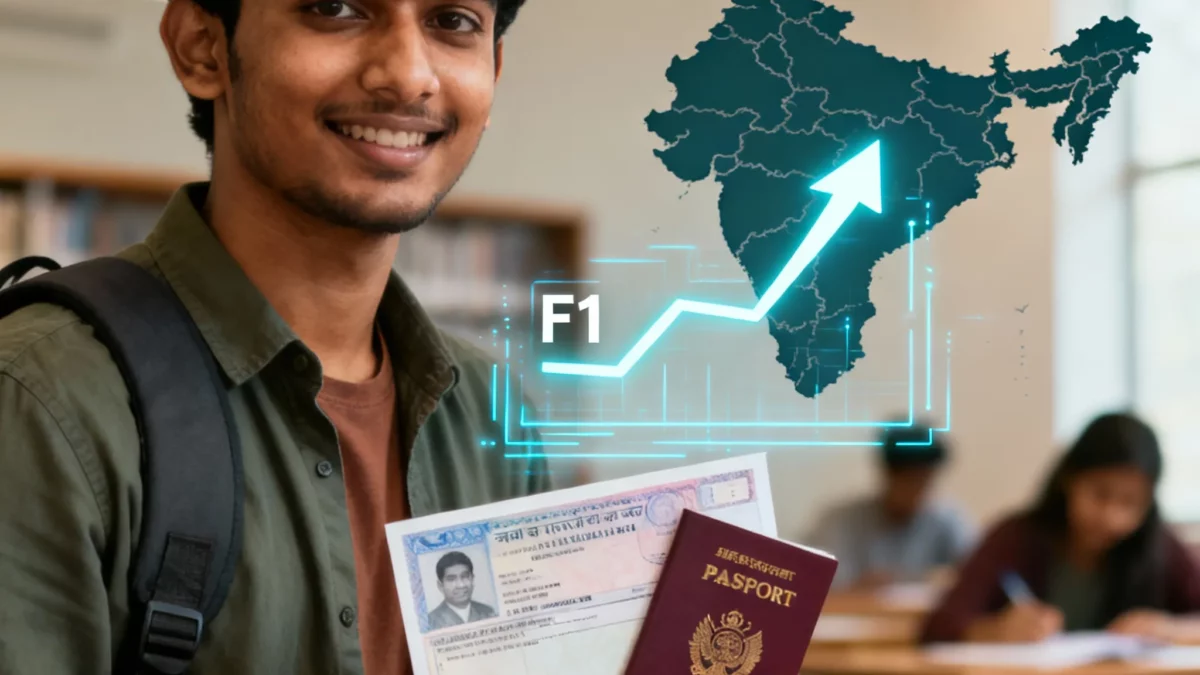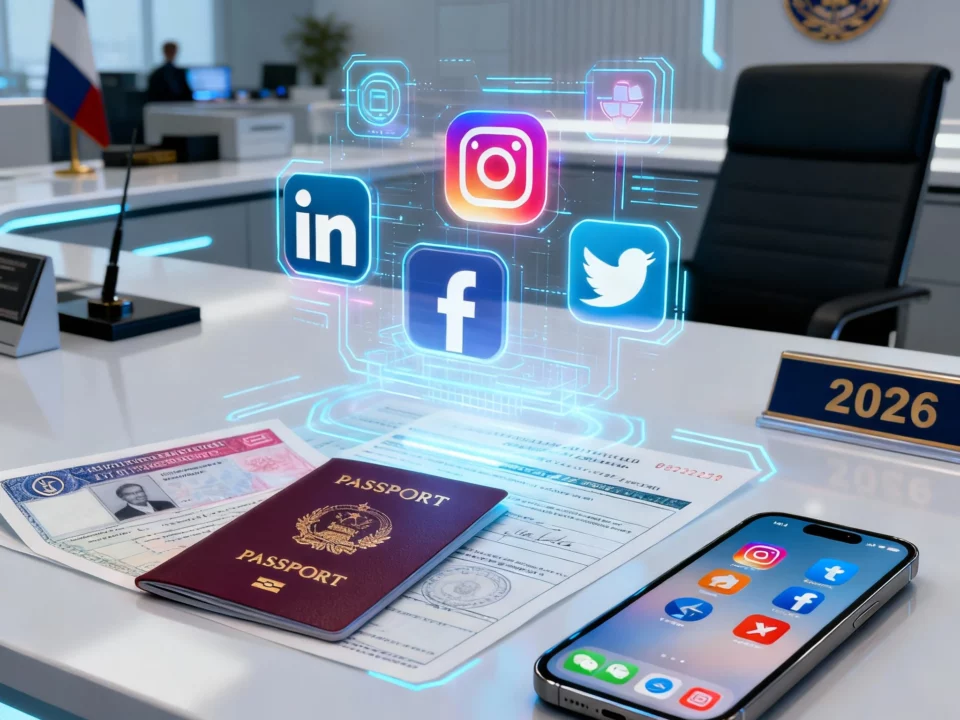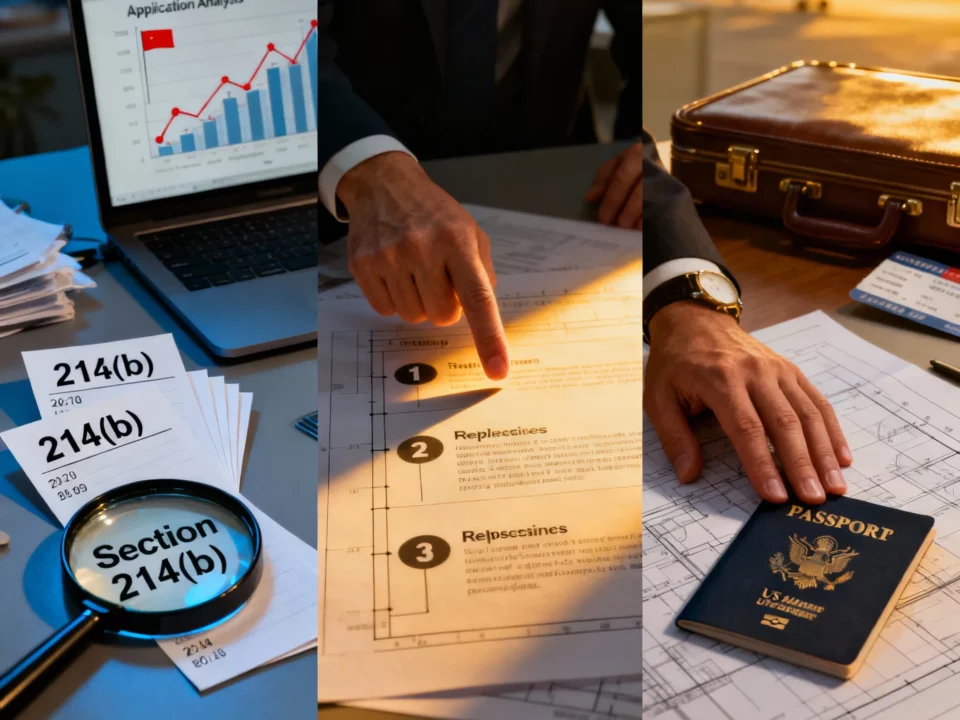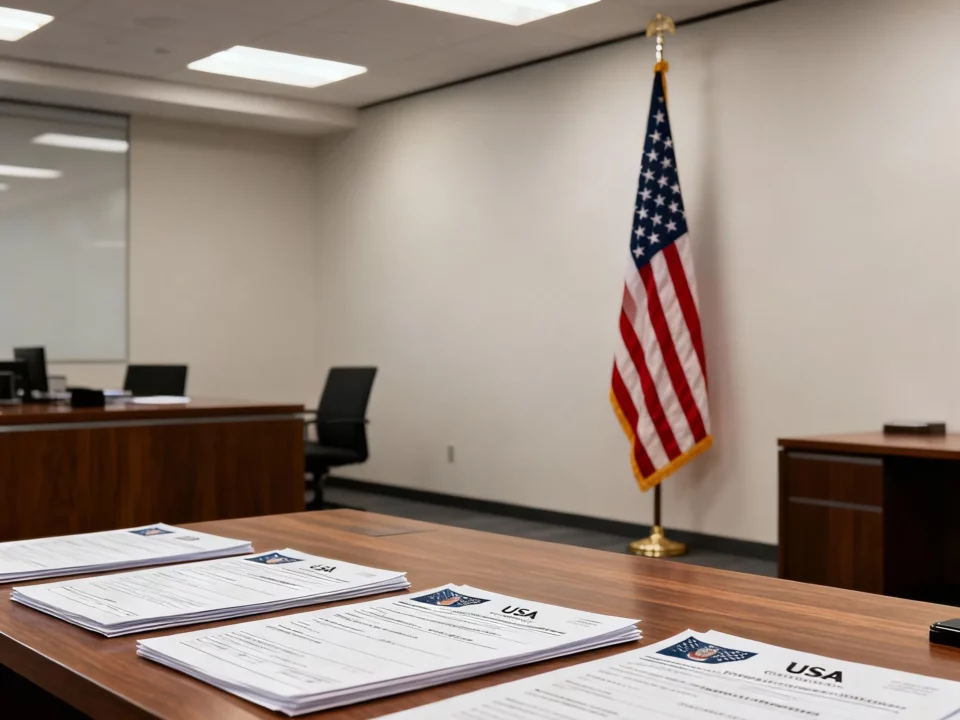F1 Visa Refusal Rate India: Complete 2026 Analysis & Guide

How rising F1 visa refusal rate across India are changing application strategies – insights from former U.S. consular officers
Table of contents
- Understanding the F1 Visa Refusal Rate: National Context
- The Myth About Financial Documents: What Visa Officers Really Care About
- The Critical Role of DS-160: Your Story Starts Here
- Why Unprepared DS-160s Lead to Refusals
- Truth About Booking Slots and Paying Fees
- Factors Influencing F1 Visa Refusal Rate Variations
- How Social Media Vetting Impacts Refusal Rates
- Proven Strategies for 2026 Success
- About Bluehawks EduAbroad F1 Visa Expertise
The F1 visa refusal rate in India has reached historic levels, with overall denials climbing to 41% in 2024 according to official U.S. State Department data. As we enter the 2026 application season, understanding these refusal patterns has become critical for every prospective student.
At Bluehawks EduAbroad, our former consular officers have observed how refusal rates vary significantly based on multiple factors, including geographic location, professional background, age demographics, and application timing. These patterns have intensified with new requirements like social media vetting introduced in 2025.
Today, we’re analyzing the factors that influence F1 visa refusal rates across India, explaining why certain applicant profiles face higher scrutiny, and providing strategic guidance for navigating the increasingly challenging 2026 visa environment.
Understanding the F1 Visa Refusal Rate: National Context
According to U.S. State Department statistics, the F1 visa refusal rate for Indian applicants reached 41% in 2024, marking a 10-year high. This represents a significant increase from previous years when denial rates hovered between 25-30%.
Nearly half of all F1 visa applications from India now result in refusals under Section 214(b). Thus, understanding refusal factors is as important as academic preparation and financial documentation.
Our former consular officers witnessed this climb due to converging factors such as enhanced scrutiny protocols, increased emphasis on immigration intent assessment, social media vetting requirements, application surges post-pandemic, and demographic shifts in applicants.
Importantly, the rising refusal rate does not necessarily reflect declining applicant quality but stricter interpretation of Section 214(b) and expanded evaluation criteria many applicants don’t yet adequately prepare for.
The Myth About Financial Documents: What Visa Officers Really Care About
During the entire F1 visa application process, it is a common misconception that visa officers scrutinize financial documents in-depth. In reality, visa officers often prefer rejecting the case outright rather than examining financial documentation fully.
At Bluehawks EduAbroad, we regularly interact with students who come to us after multiple refusals. Most report never being asked for financial docs during interviews. Instead, visa officers quickly reject applications after hearing a generic and unprepared narrative repeatedly.
The Critical Role of DS-160: Your Story Starts Here
Many students don’t know what the DS-160 form fully entails because their ‘agents’ fill it out for them, sometimes without their awareness or involvement. When asked about their job duties or educational intentions listed in DS-160, many are unsure.
Your DS-160 and interview go hand in hand; if you do not prepare a clear and compelling narrative in DS-160, you’re at a disadvantage before the interview even begins.
Forget the outdated idea that you should write minimal information in DS-160. This practice is no longer viable in the tightened visa climate. Many agents’ unsustainable models were exposed when rules tightened.
Why Unprepared DS-160s Lead to Refusals
Going to an F1 interview when your DS-160 was filled by an agent without your full involvement almost guarantees difficulties. Many students blame visa officers or the process, but the root cause often lies in this lack of understanding.
Also, avoid WhatsApp/Telegram groups about F1 visas often run by multiple refused candidates spreading misinformation. Don’t trust YouTubers or influencers posing as consultants without verified expertise.
Truth About Booking Slots and Paying Fees
Never pay anyone for your visa appointment slot—neither YouTubers, influencers, nor agents. The official U.S. government appointment system is secure and accessible.
Take charge of your application yourself, get informed, prepared, and avoid shortcuts leading to avoidable refusals.
Factors Influencing F1 Visa Refusal Rate Variations
Individual outcomes depend on multiple factors:
- Professional background and industry: Tech and finance sectors face higher scrutiny due to potential H-1B visa pathways and U.S. employment networks.
- Age and career stage: Ages 25-32 face heightened scrutiny due to prime H-1B eligibility.
- Geographic location and consular jurisdiction: Processing culture and regional migration patterns influence decisions.
- Educational background and program alignment: University tier and program-career fit matter.
- Financial documentation quality: Clear and consistent financial narratives are vital.
How Social Media Vetting Impacts Refusal Rates
Since June 2025, digital footprint inconsistencies contribute to about 18% of refusals where they are noted as factors. Career intent contradictions, financial lifestyle mismatches, immigration interest signals, and social media activity strongly influence officer decisions.
Preparation requires audits, alignment across platforms, India-focused content, and timely cleanup.
Proven Strategies for 2026 Success
- Comprehensive profile risk assessment with former officer guidance.
- Enhanced documentation beyond basics: financial, educational, family ties.
- Interview preparation focusing on authenticity, specificity, and proactive addressing of concerns.
- Timeline optimization: start preparation 8-12 months before interview.
About Bluehawks EduAbroad F1 Visa Expertise
Our former U.S. consular officers bring insider understanding of refusal rate factors and strategies for overcoming challenges. We’ve guided many applicants to success in the heightened scrutiny environment of 2025-2026.
Ready for strategic, former-officer-led preparation for your F1 visa?
💬 Chat with our 24/7 chat support team, just tap on that WhatsApp button on the right bottom of your screen 👉



